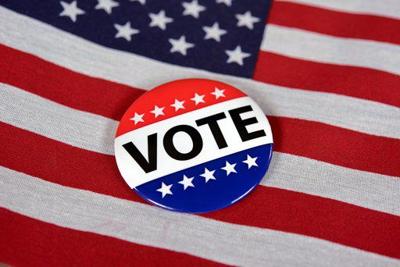The Louisiana Secretary of State, corrections officials and state lawmakers agree that a new law that will allow approximately 36,000 people on probation and parole to vote needs some tweaking. The change will still take effect March 1, but there is a consensus that the process amounts to an uphill climb for ex-offenders.
The voting rights law the Legislature approved last May was discussed Friday (Feb. 15) during a meeting of the House and Governmental Affairs Committee.
It requires the people on probation and parole who want to vote to complete a specific form that isn’t available yet and have it signed by a probation and parole officer. They will then need to take that form in person to the local registrar of voters.
“Yeah, we need to revisit the law on this,” state Rep. Gary Carter, D-New Orleans, said during Friday’s hearing. “Two separate personal appearances? That seems like a lot.”
Advocates for the formerly incarcerated agreed the process seemed burdensome.
“It’s requiring those folks to be errand boys and errand girls for those state agencies,” said Bruce Reilly, deputy director of Voice Of The Experienced (VOTE), an advocacy group for people in prison and those just released.
Louisiana will be ready for felon voting rights change, officials say
Secretary of State Kyle Ardoin, who opposed the law when it was working its way through the Legislature, said his hands are tied when it comes to streamlining the system. The new law does not negate provisions of existing election laws that require the prison system and registrars to follow the two-step process, he said.
“If you want it to work faster, then you are going to have to change the law,” Ardoin told lawmakers Friday.
The new law also isn’t specific about who’s getting their voting rights restored.
Ardoin and the corrections department disagree on whether people on probation and parole who have minor supervision violations – like failing a drug test or losing a job – would automatically lose their voting rights. The secretary of state believes they should, while penal officials say their rights should be revoked only if they return to prison.
John Bel Edwards says voting rights debate should be about policy, not numbers
The Department of Corrections is ultimately responsible for determining who qualifies to have their voting rights restored and their interpretation is the one that will be used. But Ardoin and corrections officials said the Legislature should look at defining “incarceration” in the new law to clear up any confusion.
“I think we would all appreciate some clarification by the Legislature,” Natalie LaBorde, Department of Corrections deputy secretary, at the hearing.
Legislators will convene in April for a two-month session, having discussed the felon voting rights proposal extensively last year.
Some lawmakers have said they thought the new law would restore voting rights to just a few thousand people. Months later, it was revealed roughly 36,500 people were affected, seven times original estimates.

